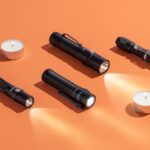What is Microsleep?
Microsleep is a brief episode of drowsiness that lasts only a few seconds. When an individual experiences microsleep, they are unaware and unable to respond to sensory input. This can lead to various problems. However, the good news is that microsleep is extremely rare and can be prevented.
Microsleep is caused by several factors. One of them is an insufficient quantity of sleep. The second is a poor quality of sleep. Insomnia and sleep apnea are two conditions that can cause microsleep. Up to 80 percent of people with sleep apnea do not even know they suffer from the condition.
To overcome this problem, sufferers should first get enough sleep. Insufficient sleep can cause the brain to malfunction, which can lead to daytime grogginess. Taking naps can help reduce microsleep, so be sure to schedule these. By taking naps, you’ll be able to take in all stages of sleep and wake up without feeling groggy.
Those who work night shifts are also at a higher risk of microsleep. People who work night shifts experience a clash in their internal clocks, which can lead to a more erratic sleep schedule. This is especially bad news for people who are not getting seven to nine hours of sleep each night.
Risks of Microsleep:
- People who don’t get enough sleep may experience microsleeps.
- Microsleep is a period of restless sleep that lasts for a fraction of a second or less.
- The earliest solution to microsleep is prevention. Avoiding activities that require your full attention during the day will help you avoid microsleeps.
- Microsleep is a state in which people are less aware of their surroundings and may be at greater risk of an accident.
- If you’re not getting enough sleep, you could be risking your safety.
How Can You Avoid Microsleep?
Taking planned naps during long flights can reduce the risk of microsleep. Another way to prevent microsleep is to talk to someone. Hearing your own name during a conversation can prevent you from falling asleep. These two tips may seem simple but they can have a profound effect on your sleep quality.
Click here – How to Polish Your Preparation if You Are Reappearing for the Exam?
Sleep Deprivation
Sleep deprivation can be dangerous, but it can also be preventable. The best way to prevent microsleep and sleep depriving episodes is to make sure you get enough sleep each night. Getting enough rest is crucial for your overall health and performance. When you’re unsure about your sleeping pattern, consult a physician. They will be able to help you determine the causes of your sleep problems and recommend a treatment plan. They can also suggest you to consume foods rich in magnesium to help you get proper sleep. Magnesium has many healthy properties apart from bringing good sleep.
Microsleep is common and can occur at any time of the day. It typically occurs before dawn or at midday, when the body naturally begins to slow down. When a person doesn’t get enough rest at night, this dip in alertness can quickly cause fatigue. Fortunately, microsleep can be avoided by following a strict sleep schedule. T
Circadian Rhythm
Microsleep is a condition that occurs when you experience a brief lapse in wakefulness during the night. People with this condition are susceptible to a variety of health problems, including weakened immunity, sleep apnea, and mood disorders. Luckily, there are ways to prevent microsleep, so you can sleep soundly at night.
Your body’s circadian rhythm is an internal, 24-hour cycle that is controlled by two groups of nerve cells. These cells control sleep and wake cycles and are linked to melatonin levels in the body. Your circadian rhythm helps your body’s internal body clock stay in sync with the daylight. By following a healthy lifestyle that includes plenty of rest, you’ll have a better chance of getting a good night’s sleep.
Insomnia
Sleep disorders like obstructive sleep apnea and insomnia can cause microsleep, which is a potentially dangerous condition. The key is to avoid microsleep episodes and get adequate sleep to minimize the risk. Adequate sleep is necessary for cognitive and physical performance and overall health. The best way to avoid microsleep episodes is to treat sleep disorders correctly.
The first thing to do is to find a safe place to rest if you are feeling exhausted. Never push yourself when you’re tired. Stop in a secure region and take a quick nap. Avoid caffeine and any other substances that make you feel drowsy. Also, review your medication and check for any potential sleep disorders.
Coffee is an important ingredient for good sleep. You can consume coffee to get deep sleep.
Daytime Sleepiness
Daytime sleepiness and microsleep can be avoided by getting enough sleep at night. It is important to get enough sleep, especially if you work night shifts. If you don’t get enough sleep at night, it can lead to a variety of health problems, including sleep apnea and insomnia. Fortunately, treatment for these conditions can help you get the sleep you need at night, eliminating the microsleep problem for good.
While sleeping can help you avoid daytime sleepiness, naps are also beneficial for adults. Even 30 minutes of nap time can help you feel refreshed and ready for the day. Even better, 90 to two hours of nap time can provide the benefits of each sleep stage.
Conclusion
The first step in fighting against microsleep is to get enough sleep. Studies have shown that people who are sleep deprived are more likely to drive while they are drowsy. This is especially dangerous for people who drive a car or a bus. Additionally, drivers who are drowsy while driving are more likely to make mistakes. This dangerous condition can lead to accidents on the road or at work.
Click here – A complete guide on High Waisted Bikinis?






